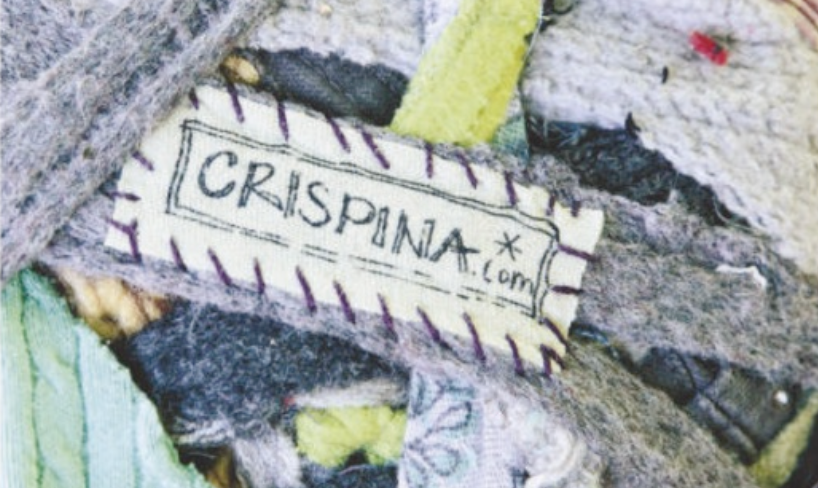
SECOND CHANCES Crispina Ffrench’s cast-off Clothes
Most eighteen-year-olds think they’re ready to change the world, but don’t have the staying power. Not Crispina ffrench. She has resurrected thrift shop sweaters into toys, blankets, rugs, clothing, ottomans, and more, for 35 years. Along the way, she’s taught her craft to scores of others, documented and published her techniques, breathed life into the idea of more sustainable design and manufacturing practices at some important players in the apparel world, and played a role in some big changes in the fashion ecosystem. And she’s not nearly done. As a young art student, ffrench complained to her late father John, a teacher and an artist, that she hated the felting technique she was required to master by a professor. She was not happy with the muted tones of her hand-dyed rovings, and miserable about the wet, soapy process. John, ever an inventive problem solver, burst out with an admonition to fetch some wool sweaters from Goodwill.


Two years later, she had forty employees. ‘We sorted by colour and quality. The best sweaters went for blankets, medium grades for toys and mittens, and the roughest stuff for rugs.’ With this careful sorting, ffrench’s patchwork compositions acquired the qualities they have today, with textures and hues playing off of each other often in tone on tone harmonies and witty contrasts.
In the early years of her studio practice, ffrench often sensed a bit of polite alarm when customers learned that the goods were made of recycled clothing. Back in those days, she needed to develop descriptions of the material and the process that reassured her audience of the value of what she was doing. Today, recycling textiles and yarns, and resale of clothing, are increasingly part of the mainstream, with companies like Eileen Fisher and Patagonia taking a lead position.

Working with high quality recycled wool garments, currently less plentiful thanks to the popularity of synthetic fleece, must be balanced with ffrench’s teaching at FIT, the development of her own soonto-premier online courses, and a monthly subscription service of boxed DIY recycled craft projects. She is energised by this new phase of her career, ‘It’s a whole new realm of creative possibility that makes people participants in the ecosystem, not just getting people to buy more.’
This article was previously published on issue 93 Rethink, available for purchase on our website. Text by Keith Recker.
www.crispinaffrench.com
